13-5. Glyph Eb4-13 ought
to allude to 413 = 14 * 29½, and the
numerous parallel texts
continue - up to the day
before that when our present world was finally created.
Also: 41 * 3 = 123 (→ 366 / 2 - 60)
and 4 * 13 = 52 (→ 364 / 7).
... There seems to have been a little
difficulty at first in getting the machinery of the sky into
smooth running order, for some maintain that Ruddy Sun and
Waxing Moon disputed in a brotherly fashion. The Sun desired the
Moon to accompany him and suggested they travel in daylight,
while the Moon insisted they make their rounds during the night.
So they agreed, not too amicably, to separate, the Moon saying
pettishly, 'Very well! You go by day and have the servile job of
drying women's washings!' And the Sun retorted, 'And you go by
night and be terrified by food-ovens!' The quarrel must have
been made up later, for the Moon visits the Sun for a day or two
each month ...
 |
 |
 |
 |
 |
 |
|
Eb4-7 |
Eb4-8 |
Eb4-9 |
Eb4-10 |
Eb4-11 (326 + 118) |
Eb4-12
(445) |
|
te honu |
te henua |
te honu paka |
te maitaki |
te henua |
te henua - te kiore |
|
... Once again henua /
kiore instead of kiore / henua
(cfr Eb4-1).
I suspect that Metoro in both places
realized that he was wrong in reading
backwards and therefore read the glyph
right. The patterns of glyphs in these two
places are not only easily recognized but
should also have been very well known
because of the many
parallel
ocurrences in the texts of different tablets
...
Paka.
1. Dry; to become dry (of things);
pakapaka, to dry out. Te paka is
also the name of the moss-covered areas,
between the small lakes of volcano Rano
Kau, through which one can pass without
getting one's feet wet. 2. To go, to depart;
he-paka-mai, to come; he-oho,
he-paka, they go away. 3. To become calm
(of the sea): ku-paka-á te tai.
Pakahera, skull, shell, cranium;
pakahera puoko tagata, human skull;
pakahera pikea, shell of crab or
crayfish. Gutu pakapaka, scabbed
lips. Hau paka, fibres of the
hauhau tree, which were first soaked in
water, then dried to produce a strong
thread. Moa gao verapaka, chicken
with bald neck. Ariki Paka, certain
collateral descendents of Hotu Matu'a,
who exercised religious functions. Vanaga.
1. Crust, scab, scurf; paka rerere,
cancer; pakapaka, crust, scabby. 2.
Calm, still. 3. Intensive; vera paka,
scorching hot; marego paka, bald;
nunu paka, thin. 4. To arrive, to come.
5. To be eager. 6. To absorb. 7. Shin T.
Pakahera, calabash, shell, jug.
Pakahia, to clot, curdle, coagulate.
Pakapaka, dry, arid, scorching hot,
cooked too much, a desert, to fade away, to
roast, a cake, active; toto pakapaka,
coagulated blood; hakapakapaka, to
dry, to broil, to toast. Pakahera pikea,
shell of crab or crayfish. Churchill.
... The ancient Chinese believed that with
the arrival of the dry season the earth and
sky ceased to communicate. The Spirit of
drought was personified by a little bald
woman with eyes at the top of her head.
While she was present, the sky refrained
from sending rain, so as not to harm
her.Hills and rivers are the first to suffer
from drought. It deprives hills of their
trees, i.e. their hair, and rivers of their
fish, which are their people. The same word,
wang, means mad, deceitful, lame,
hunchbacked, bald and Spirit of drought ...
...
Lobster said to
Flounder: 'Let us-two hide from each other,
see who is best at that.' Flounder agreed to
play this game. Lobster went to a hole in
the coral, hid his body; but his feelers
stuck out, he could not hide them. Flounder
knew where he was, found him. Said Flounder;
'Now it is my turn.' He stirred up a cloud
of mud and scooted into it. Then he returned
to Lobster's side, so quietly that Lobster
did not know he was there. 'Here I am sir,
Lobster!' Lobster was so angry at being
beaten that he stamped on the fish and
smashed him flat. Cried Flounder; 'Now
I've got one eye in the mud!' Therefore
Lobster gouged it out for him and roughly
stuck it back on top. This is the reason why
men tread on the Flounder, but can always
see the Lobster's feelers outside his hole
... |
|
VISIBLE CLOSE
TO THE FULL MOON: |
|
July 29
(420 / 2) |
30 |
31 |
Aug 1
(213) |
2 (2 *
107) |
3 (*135, 580) |
|
Al Nathrah-6 (Gap)
BEEHIVE (Exhalation of Piled-up Corpses) = ε Cancri,
η Pyxidis (130.4), XESTUS = ο Velorum
(130.5), ζ Pyxidis (130.7),
ASCELLUS BOREALIS = γ Cancri, β Pyxidis (130.9)
*89.0 = *130.4 - *41.4 |
Extended Net-26a
(Ox)
/
Arkū-sha-nangaru-sha-shūtu-12 (Southeast
Star in the Crab)
η
Hydrae (131.0),
ASCELLUS AUSTRALIS =
δ
Cancri
(131.4),
KOO SHE =
Bow and Arrow
=
δ
Velorum
(131.6),
α
Pyxidis (131.8),
ε
Hydrae (131.9)
*90.0 = *131.4 - *41.4 |
ι Cancri (132.0),
ρ
Hydrae (132.4)
*91.0 = *132.4 - *41.4 |
γ Pyxidis (133.6) |
ζ
Hydrae (134.1),
ρ
Cancri (134.2),
ζ
Oct.
(134.3), ο Cancri (134.6), δ Pyxidis (134.9) |
ACUBENS
= α Cancri,
TALITHA BOREALIS = ι Ursae Majoris
(135.0), σ Cancri (135.2), ρ Ursa Majoris
(135.6) |
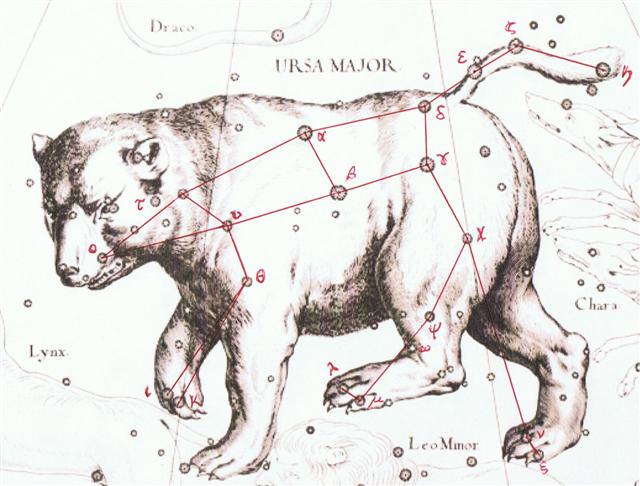 |
|
... He
then set off to look for his wife and
children; he found them again and gave them
food, for his rival had deprived the
children of food in the hope that they would
quickly die of hunger. The
hero [→
Homan,*341 → *206 + *136] then hid
in a meat sack, jumped on the Trickster and
killed him. The corpse was cut up and the
pieces scattered. However, the Trickster
came back to life. He went away and stopped
to rest by a lake, and meditated on death:
should death be final or not? On seeing that
a stick, then a buffalo turd, and lastly a
piece of pith remained afloat after he had
thrown them into the lake, he opted for
resurrection. However, when a pebble sank,
he reversed his decision. It was better that
people should die, he concluded, otherwise
the earth would quickly become
overpopulated. Since that time, people only
live for a certain period and die for ever
...
... At
length there appeared beside them the gable
and thatched roof of the house of Tonganui,
and not only the house, but a huge piece of
the land attached to it. The brothers
wailed, and beat their heads, as they saw
that Maui had fished up land, Te Ika a
Maui, the fish of Maui. And there were
houses on it, and fires burning, and people
going about their daily tasks. Then Maui
hitched his line round one of the paddles
laid under a pair of thwarts, and picked up
his maro, and put it on again. 'Now
while I'm away,' he said, 'show some common
sense and don't be impatient. Don't eat food
until I come back, and whatever you do don't
start cutting up the fish until I have found
a priest and made an offering to the gods,
and completed all the necessary rites. When
I get back it will be all right to cut him
up, and we'll share him out equally then.
What we cannot take with us will keep until
we come back for it.' Maui then returned to
their village. But as soon as his back was
turned his brothers did the very things that
he had told them not to. They began to eat
food, which was a sacrilege because no
portion had yet been offered to the gods.
And they started to scale the fish and cut
bits off it. When they did this, Maui had
not yet reached the sacred place and the
presence of the gods. Had he done so, all
the male and female deities would have been
appeased by the promise of portions of the
fish, and Tangaroa would have been content.
As it was they were angry, and they caused
the fish of Maui to writhe and lash about
like any other fish. That is the reason why
this land, Aotearoa, is now so rough
and mountainous and much of it so unuseful
to man. Had the brothers done as Maui told
them it would have lain smooth and flat, an
example to the world of what good land
should be. But as soon as the sun rose above
the horizon the writhing fish of Maui became
solid underfoot, and could not be smoothed
out again. This act of Maui's, that gave our
people the land on which we live, was
an event next in greatness to the separation
of the Sky and Earth ...
... Sorrowing, then, the two
women placed Osiris's coffer on a boat, and
when the goddess Isis was alone with it at
sea, she opened the chest and, laying her
face on the face of her brother, kissed him
and wept. The myth goes on to tell of the
blessed boat's arrival in the marshes of the
Delta, and of how Set, one night hunting the
boar by the light of the full moon,
discovered the sarcophagus and tore the body
into fourteen pieces, which he scattered
abroad; so that, once again, the goddess had
a difficult task before her. She was
assisted, this time, however, by her little
son Horus, who had the head of a hawk, by
the son of her sister Nephtys, little
Anubis, who had the head of a jackal, and by
Nephtys herself, the sister-bride of their
wicked brother Set. Anubis, the elder of the
two boys, had been conceived one very dark
night, we are told, when Osiris mistook
Nephtys for Isis; so that by some it is
argued that the malice of Set must have been
inspired not by the public virtue and good
name of the noble culture hero, but by this
domestic inadventure. The younger, but true
son, Horus, on the other hand, had been more
fortunately conceived - according to some,
when Isis lay upon her dead brother in the
boat, or, according to others, as she
fluttered about the palace pillar in the
form of a bird. The four bereaved and
searching divinities, the two mothers and
their two sons, were joined by a fifth, the
moon-god Thoth (who appears sometimes in the
form of an ibis-headed scribe, at other
times in the form of a baboon), and together
they found all of Osiris save his genital
member, which had been swallowed by a fish.
They tightly swathed the broken body in
linen bandages, and when they performed over
it the rites that thereafter were to be
continued in Egypt in the ceremonial burial
of kings, Isis fanned the corpse with her
wings and Osiris revived, to become the
ruler of the dead. He now sits majestically
in the underworld, in the Hall of the Two
Truths, assisted by forty-two assessors, one
from each of the principal districts of
Egypt; and there he judges the souls of the
dead. These confess before him, and when
their hearts have been weighed in a balance
against a feather, receive, according to
their lives, the reward of virtue and the
punishment of sin ...
...
According to a variety of sources of the
legend, the Argo was said to have
been planned or constructed with the help of
Athena. According to other legends it
contained in its prow a magical piece of
timber from the sacred forest of Dodona,
which could speak and render prophecies.
Argo Navis is the only one of the 48
constellations listed by the 2nd century
astronomer Ptolemy that is no longer
officially recognised as a constellation. It
was unwieldy due to its enormous size: were
it still considered a single constellation,
it would be the largest of all. In 1752, the
French astronomer Nicolas Louis de
Lacaille subdivided it into Carina
(the keel, or the hull, of the ship),
Puppis (the poop deck), and Vela
(the sails). When Argo Navis was
split, its Bayer designations were also
split. Carina has the α,
β and ε,
Vela has γ
and δ, Puppis
has ζ, and so on.
The constellation Pyxis (the
mariner's compass) occupies an area which in
antiquity was considered part of Argo's
mast (called Malus). However,
Pyxis is not now considered part of
Argo Navis, and its Bayer designations
are separate from those of Carina,
Puppis and Vela ... |
|
 |
*25 |
 |
|
No star listed
(*110) |
ACUBENS (*135.0) |
|
Eb3-25
(420) |
Eb4-12 (445) |
|
July 9 (190, 555) |
Aug 3 (20
* 29) |
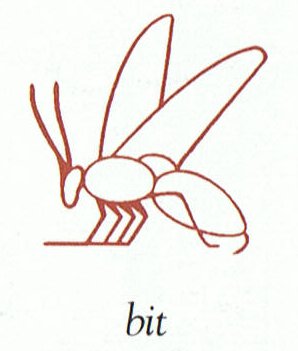 |
... It was 4 August 1968, and it
was the feast day of Saint Dominic, patron of Santo
Domingo Pueblo, southwest of Santa Fe. At one end of
the hot, dusty plaza, a Dominican priest watched
nervously as several hundred dancers arranged in two
long rows pounded the earth with their moccasined
feet as a mighty, collective prayer [ui] for
rain, accompanied by the powerful baritone singing
of a chorus and the beat of drums. As my family and
I viewed this, the largest and in some ways the most
impressive Native American public ceremony, a tiny
cloud over the Jémez Mountains to the northwest got
larger and larger, eventually filling up the sky; at
last the storm broke, and the sky was crisscrossed
by lightning and the pueblo resounded with peals of
rolling thunder ...
 |
 |
 |
|
Eb4-13 |
Eb4-14 (11 *
11) |
Eb4-15 |
|
te rakau |
ko te
hoea |
te henua |
|
Hoe 1. Paddle. Mgv.:
hoe, ohe, id. Mq., Ta.: hoe,
id. 2. To wheeze with fatigue (oeoe 2).
Arero oeoe, to stammer, to stutter; Mgv.
oe, to make a whistling sound in
breathing; ohe, a cry from a person out
of breath. Mq.: oe, to wheeze with
fatigue. 3. Blade, knife; hoe hakaiu,
clasp-knife, jack-knife; hoe hakanemu,
clasp-knife; hoe pikopiko, pruning knife.
4. Ta.: oheohe, a plant. Ma.: kohekohe,
id. Churchill. T. Paddle. E hoe te heiva
= 'and to paddle (was their) pleasure'. Henry.
Hoea, instrument for tattooing. Barthel. |
|
VISIBLE CLOSE
TO THE FULL MOON: |
|
Aug 4 (2 ' 108) |
5 |
6 (218) |
|
"St John's
Day (175) |
"June 25 (217 - 41) |
26 (6 * 29½) |
|
JUNE 1 (152) |
2 |
3 (218 - 64) |
|
ν Cancri (136.0),
TALITHA AUSTRALIS = κ Ursae Majoris
(136.1), ω Hydrae (136.8) |
9h (137.0)
σ¹ Ursa Majoris (137.0), κ Cancri (137.3),
τ
Cancri (137.4),
ALSUHAIL (al Wazn, of the Weight) = λ Velorum
(137.5), σ² Ursa Majoris (137.6), τ Ursa Majoris
(137.7), ξ Cancri (137.8)
*96.0 = *137.4 - *41.4 |
κ Pyxidis (138.0), ε Pyxidis (138.5) |
|
THE SUN: |
|
21h (319.6)
ARMUS =
η
Capricorni
(319.0),
DORSUM =
θ
Capricorni
(319.3),
TSOO = 24 Capricorni
(319.7) |
DRAMASA =
σ
Oct.,
χ
Capricorni (320.0),
ν
Aquarii (320.3),
γ
Equulei (320.6),
ο
Pavonis (320.8) |
α Oct. (321.5), δ
Equulei (321.7),
φ
Capricorni (321.8) |
|
"X-mas Eve
(*278) |
"Dec 25 (*320 - *41) |
26 (360 =
177 + 183) |
|
DEC 1 (365
- 30) |
2 (2 *
168) |
3 (154 +
183) |
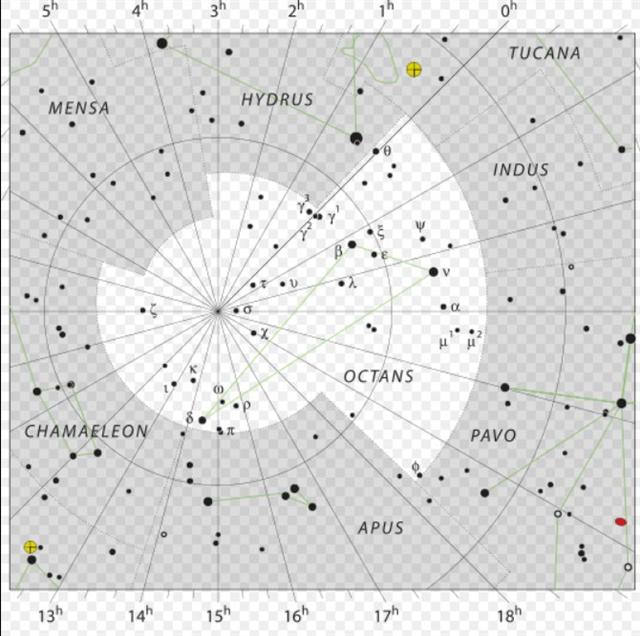
 |
 |
 |
|
Eb4-16 |
Eb4-17
(450) |
Eb4-18 (125) |
|
te rakau |
te rakau |
tagata |
|
Aug 7 |
8 (220) |
9 |
|
π
Cancri (139.2),
MIAPLACIDUS =
β
Carinae
(139.3),
TUREIS (Little Shield) =
ι
Carinae
(139.8) |
No star listed (140) |
θ
Pyxidis (141.5),
MARKAB VELORUM =
κ
Velorum
(141.5),
AL MINHAR AL ASAD (The Nose of the Lion)
=
κ
Leonis
(141.6),
λ
Pyxidis (141.9) |
|
KITALPHA (Part of a Horse) =
α
Equulei
(322.0),
ALDERAMIN (The Right Arm) =
α
Cephei
(322.9) |
DAI =
ι
Capricorni
(323.5),
β
Equulei (323.8) |
γ
Pavonis (324.1),
YAN =
ζ
Capricorni
(324.6 |
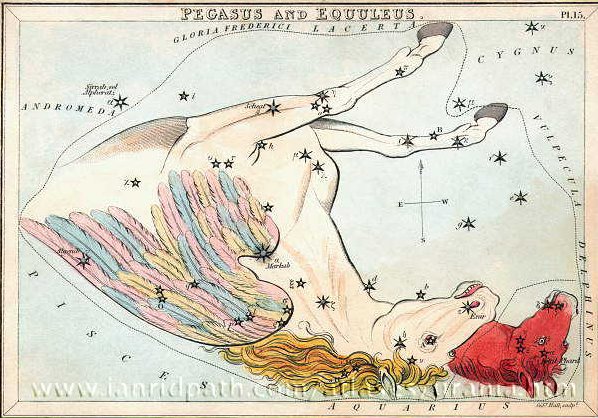
 |
 |
 |
|
Eb4-19 |
Eb4-20 |
Eb4-21 (128, 454) |
|
hoi atu - henua |
te ariki |
henua - kiore |
|
Hoki. To
return, to go back, to
come back; ka hoki ki rá, go back
there! ana oho koe ki Hiva, e hoki
mai ki nei, if you go to the
mainland, do come back here again.
Vanaga. 1. Also, what; ki ra hoki,
precisely there; pei ra hoki,
similitude, likeness; pei ra hoki ta
matou, usage. P Pau.: hokihoki,
often. Mgv.: hoki, also, and,
likewise. Mq.: hoi, surely. Ta.:
hoi, also, likewise. 2. To
return, to turn back, to draw back, to
give back, to tack; mau e hoki mai,
to lend; hoki hakahou, to carry
back; hoki amuri, to retrograde;
hakahoki, to bring back, to send
back, to carry back, to restore, to
renew, to revoke, to remove, to dismiss,
to pay, to pardon, to compress;
hakahokia, given up; hakahokihaga,
obligation. P Pau.: hokihoki, to
persist, to insist; fakahoki, to
give back. Mgv.: hoki, to return,
to retrace one's steps; oki, to
return, to come back. Ta.: hoi,
to return, to come back. Ta.: mahoi,
the essence or soul of a god. Churchill.
Atu. Particle of
meaning opposite to that of mai;
it refers to the second or third person,
expressing movement away:
ka-avai-atu, give it to him:
he-oho-atu au, I am going there,
after you; i-oho-atu-era, when I
had gone there. Vanaga. 1. a. Directive,
of motion from the speaker. b. Somewhat
expressive of the comparative degree. 2.
Pupil; hakaatu, proof; hare
hakaatuga, schoolhouse, class. 3. (hakaatu),
to presage. 4. (hakaatu), mark,
object. Churchill. |
|
Aug
10 (222) |
11 |
12 |
|
Star-25
(Horse)
/
ANA-HEU-HEU-PO-5
(Pillar where debates were held)
ALPHARD (The Horse) =
α
Hydrae
(142.3),
ω
Leonis (142.6),
τ¹
Hydrae (142.7) |
Al
Tarf-7 (The End)
ψ
Velorum (143.3),
ALTERF =
λ
Leonis,
τ²
Hydrae (143.4),
ξ
Leonis (143.5)
*102.0 = *143.4 - *41.4 |
A Hydrae (144.1)
VEGA (α Lyrae) |
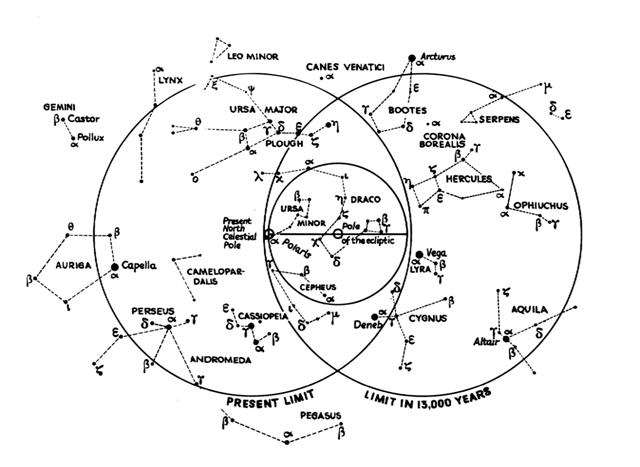 |
|
Al
Sa'd al Su'ud-22 (Luckiest of the Lucky)
/
Emptiness-11 (Rat)
TSIN = 36 Capricorni
(325.2),
ALPHIRK (The Flock) =
β
Cephei
(325.7),
SADALSUD =
β
Aquarii,
ξ
Gruis (325.9) |
No star listed (326) |
CASTRA =
ε
Capricorni
(327.2),
BUNDA (Foundation) =
ξ
Aquarii
(327.5)
SIRIUS (α Canis Majoris |
|
"Dec 30 (364) |
31
(*285 = *326 - *41) |
"Jan 1 (366) |
|
...
Far away, the Mangaians of old (Austral
Islands, Polynesia), who kept the
precessional clock running instead of
switching over to 'signs', claim that
only at the evening of the solstitial
days can spirits enter heaven, the
inhabitants of the northern parts of the
island at one solstice, the dwellers in
the south at the other ... |
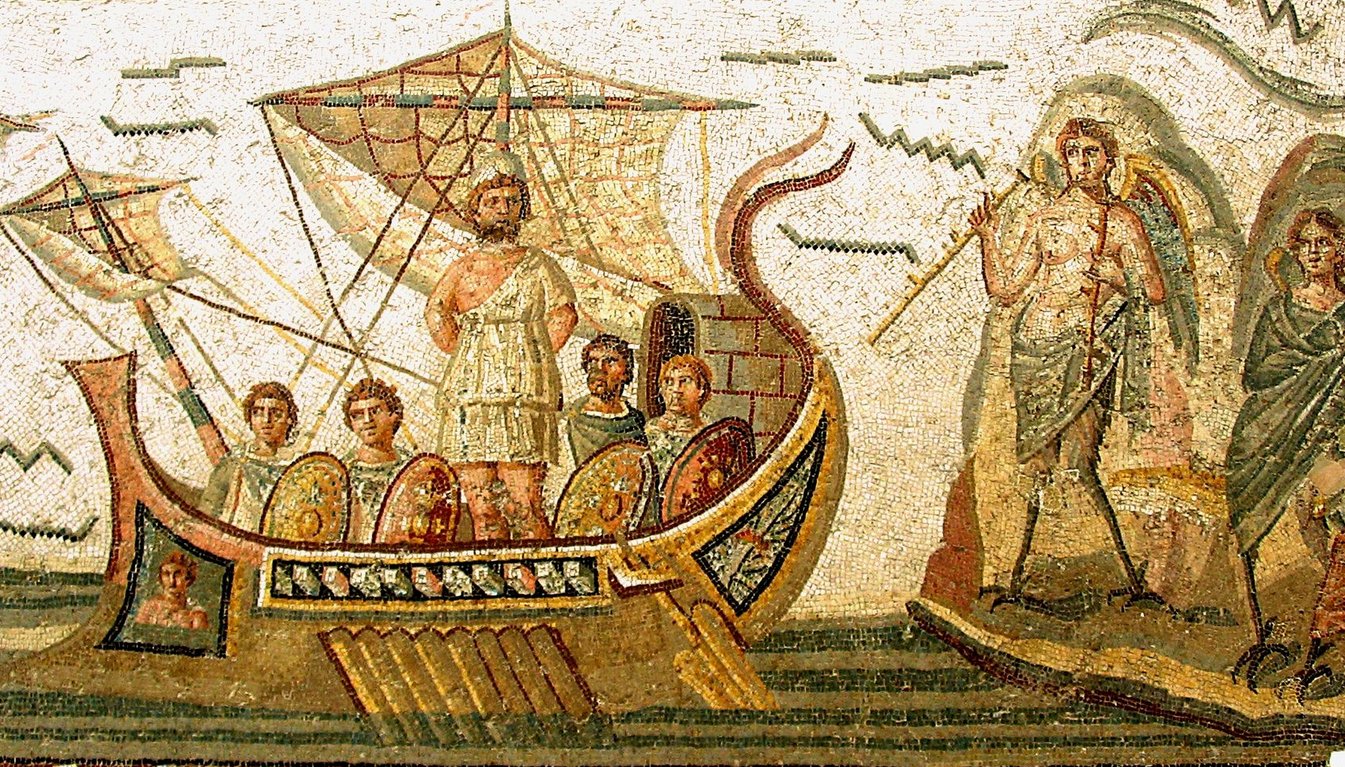
|








